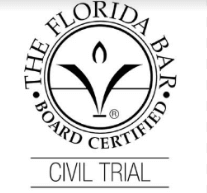Car Insurance Tracking Device: Do or Don’t?
September 9, 2024 | Attorney, Elen Krut
The typical conversation regarding vehicles usually involves the make and model, horsepower and engine type, and the packages with features that may be loaded in your car by the manufacturer. Among those features, one might discuss the necessities that simply keep the car moving, as well as luxuries, such as massaging seats or a heated steering wheel.
However, the more recent discussions now include an additional “feature” that was not initially a part of your car but nevertheless becomes a part of the person’s driving experience. We are referring to the equipment provided by the car insurance company that tracks the person’s driving habits as part of the usage-based insurance program. This little beacon is placed in the car and remains there for a certain period of time or indefinitely, depending on the program offered by the insurance carrier, and it connects to an app on the driver’s smartphone. The communication between the beacon and the phone while the person is driving allows the insurance carrier to collect data related to the person’s driving habits.
This program is voluntary and is now widely used by most major car insurance companies like State Farm (Drive Safe and Save), Liberty Mutual (RightTrack), Nationwide (SmartRide), Allstate (Drivewise), Geico (DriveEasy), Progressive (Snapshot), and Farmers (Signal). The program participant may disenroll from the program, though the consequences may include the loss of the discount on the insurance premium.
The typical insurance tracking device collects information such as: (1) speed; (2) breaking (i.e. hard breaking); (3) cornering (i.e. hard cornering); (4) acceleration; and (5) phone distraction (i.e. application usage on a smartphone such as texting). Some devices go beyond and collect more information, such as daytime vs. nighttime driving, as well as driving frequency and duration.
Considering the information collected by the beacon, the typical concerns arise regarding surrendering personal and private information regarding the person’s life, such as the location, date, and time of the driver’s trips. Further, the beacon will notify the insurance carrier of the negative events of the trip, such as car accident or driving over the speed limit. The car insurance company may rely on such information while considering the person’s claim for compensation.
The obvious benefit of participating in the usage-based insurance program is saving money on the car insurance premium, provided that the driving experience reflects safe driving habits. However, an additional benefit might be supporting your insurance claim using the data collected by the beacon to prove that you were not at fault.
Ultimately, the decision to participate in the usage-based program that utilizes a tracking beacon rests with the driver and largely depends on how much information the person is willing to share with the insurance company. Having an experienced attorney on your side will increase your chances of utilizing this information to see if this new “feature” might work in your favor.
Disclaimer: The information in this blog post is provided for general informational purposes only. The firm is not pursuing a legal action against insurance companies related to the tracking beacon of any insurance company.
 (561) 375-9500
(561) 375-9500
 Call
Call





